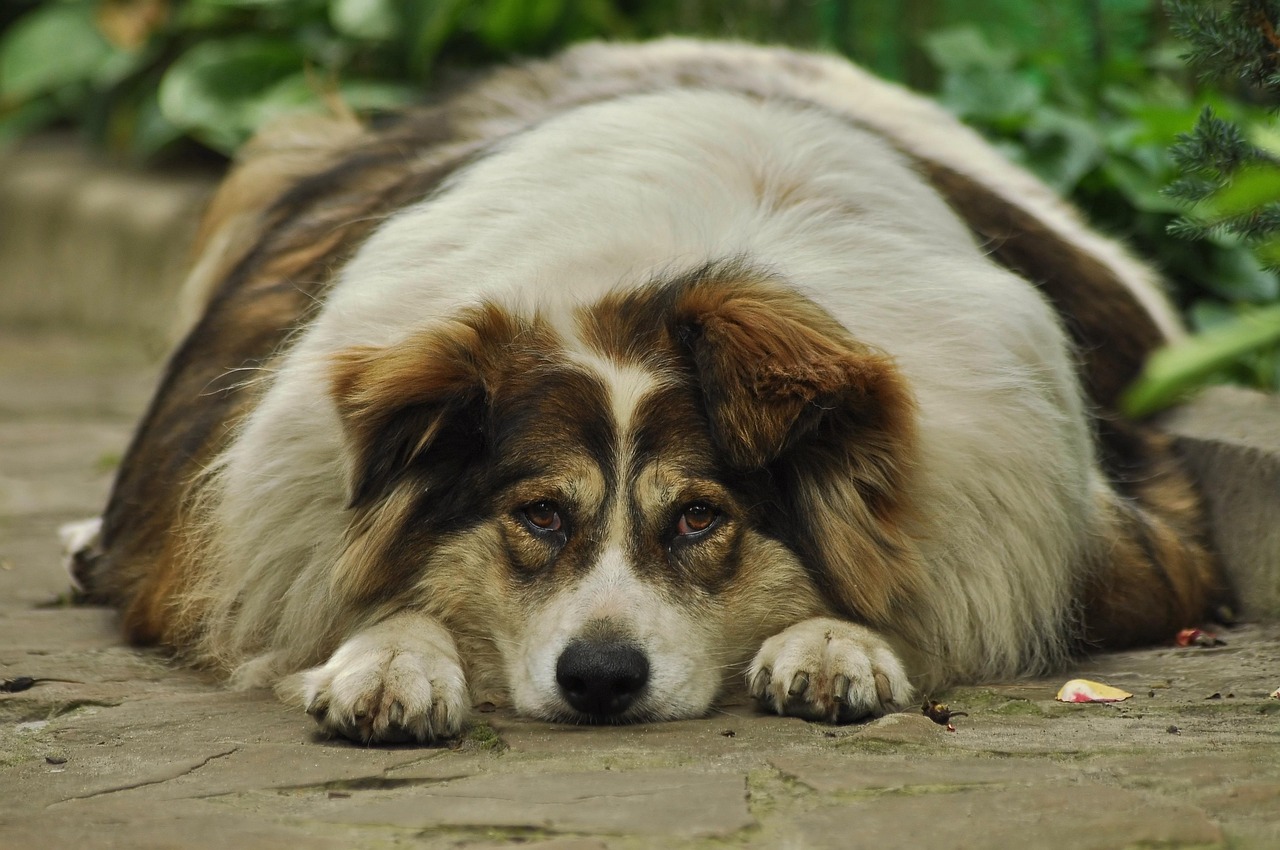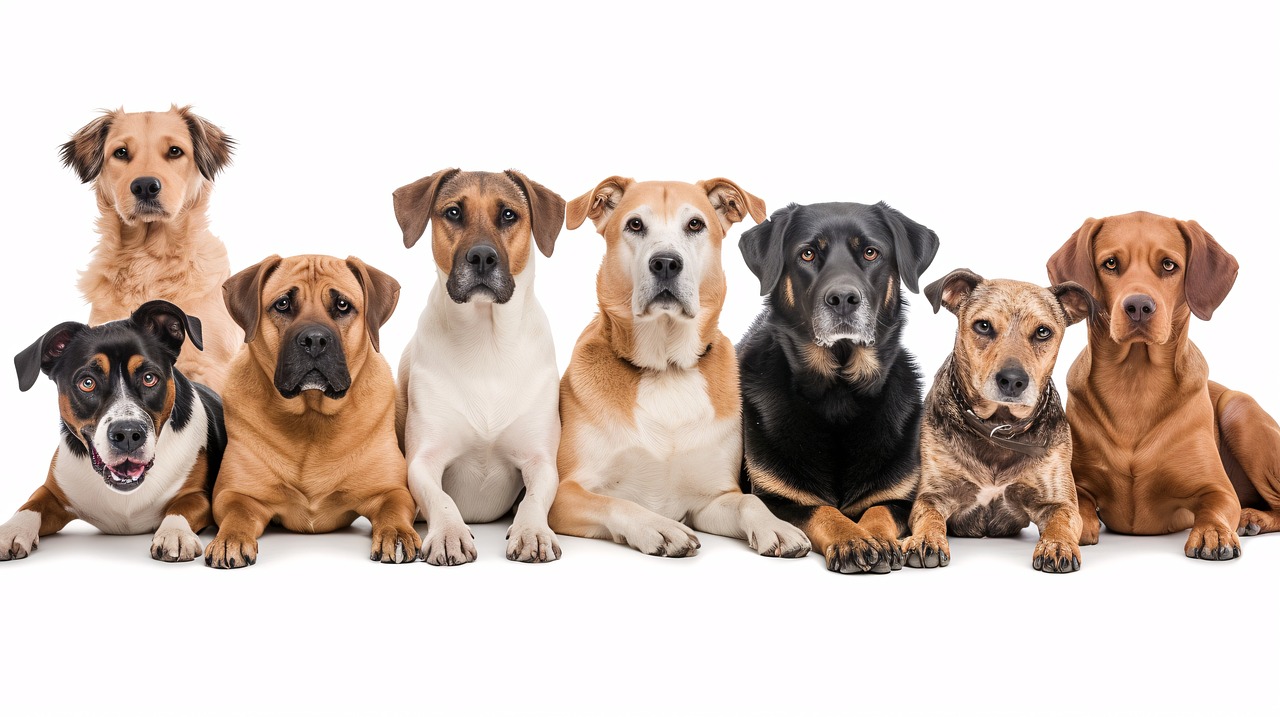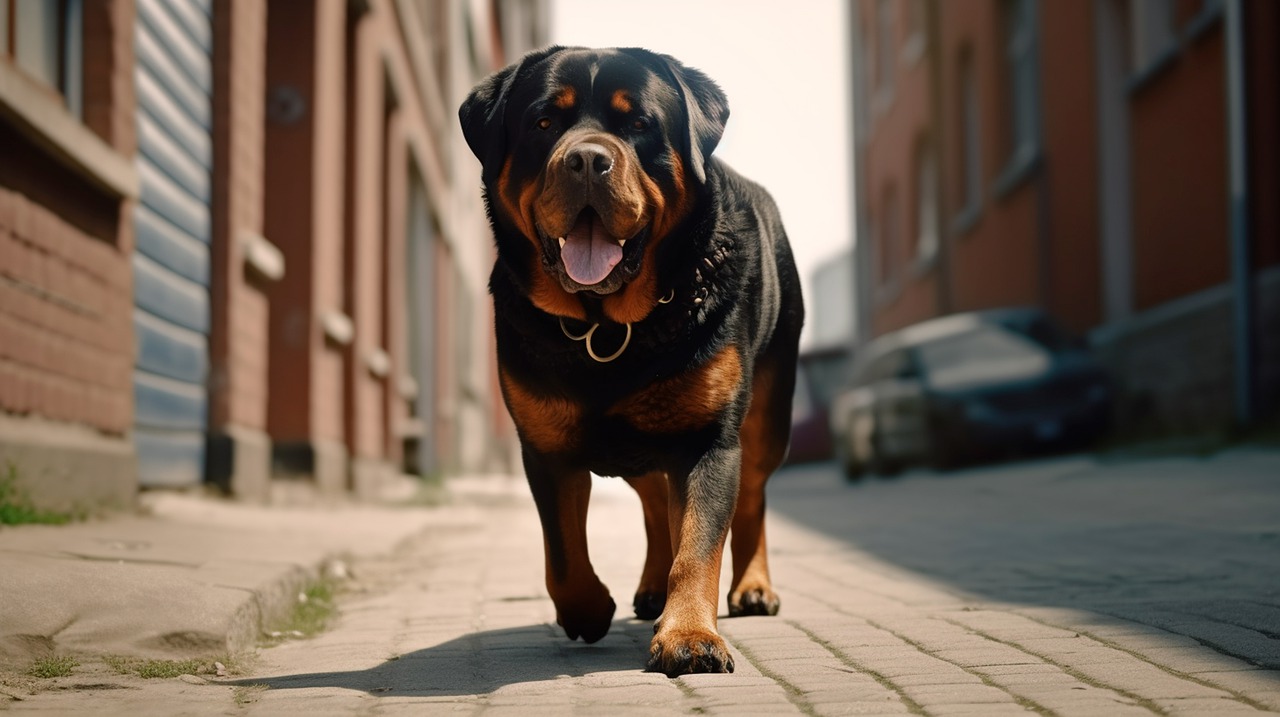One problem faced by almost every canine lover in his lifetime is obesity in his/her dog. Obesity can cause different types of health issues including heart problems and arthritis (inflammation of joints). We have mentioned in this article some of the major reasons that can cause your dog to become fatty and overweight. But you need to remember that every extended belly is not due to fat accumulation in the body.
Reasons For Extended Abdomen (Looks like an overweight dog)
Sometimes, when your pet looks fatty and obese, it is facing some other abnormal condition. Some of the possible causes of extended bellies are given below.
Bloat
If you suspect that your dog is suffering from bloat, consider it a medical emergency and consultation with a vet as soon as possible is advisable. If gastric gases or fluids accumulate in the stomach it can cause torsion of the stomach, which can be fatal for your dog.
Pregnancy
Pregnancy is another possible reason that causes the abdomen to extend in your pet which looks like an overweight dog. It is a whole different scenario for your pet to experience many different behavioural changes that accompany the extended belly symptom. In this situation, if you are doubtful about the pregnancy status, consulting a vet will be very helpful.
Below are the most common 8 reasons that can cause your dog to be obese and overweight.
1. TOO MUCH EATING
A pet owner can feed his dog too much. This situation worsens if the other household members give their food to the dog. There are many incidents where a dog is given something to eat without being noticed by its owner. These extra calories will contribute their due share in getting more fat accumulation inside the body and cause your dog to be overweight.
The best option is very simple in this situation, you must follow a strict diet plan. If any other house member feeds your dog anything, let them inform you so that you can burn those extra calories with some extra exercise.
2. LACK OF EXERCISE
Dogs have an instinct to enjoy their walk with their owners. Every dog owner who does not spend time with his dog, especially during morning and evening walks, has been missing a very pleasant experience. The walk is not just about being pleased, but it is the need of your dog to keep its body weight under control.
You can consider increasing your walk time if you are already doing so. This will eventually burn the extra fat on your dog and ultimately will lead to a decrease in the body weight of your dog.
3. HYPOTHYROIDISM
The thyroid is a gland which secretes a hormone called thyroxin. Thyroxin hormone has an impact on metabolism inside the body of vertebrates. In this condition, if thyroid glands don’t produce adequate hormone to metabolize the feed, it will cause digestive problems in the dog. Dogs aged 4 to 5 years are most susceptible to this condition. Increased body weight due to hypothyroidism can be accompanied by other typical symptoms like shedding and lethargic conditions. If you notice any of the symptoms related to hypothyroidism, consult your vet and let your dog be checked thoroughly.
4. AGING AND DOG OVERWEIGHT
Naturally, like every other living thing, dogs also lose muscles and get fatigued through the ageing process. With age, their metabolism becomes slow naturally, so the fat gets into their body. To keep your dog active even at an older age when his quality of life is suffering from the ruthless ageing process, you need to remain in touch with your veterinarian and his recommended exercises and training programs are to be followed regularly to keep your dog healthy.
5. HIGHLY CARBOHYDRATE DIET
Ironically, the food that is available in the markets for overweight dogs can be a reason for getting more obese and overweight. Most of the food products on the market have less fat and high carbohydrate concentrations in them. High carbohydrate intake can force the body to produce more insulin. When a dog has high insulin levels, it will increase its appetite, which then increases its food intake. Instead, one should search for a low carbohydrate and high protein diet to keep the weight of your dog under control. You can use the dog feed recommended by Dr Lindsey Butzer in her YouTube video
6. HYPER ADENOCARTICISM
In this disease, the hormone cortisol is produced in excessive quantities in the body. Excessive amounts of cortisol hormone could be a reason to gain extra weight. Other symptoms of Cushing’s disease include lethargy and stiffness when walking. These symptoms can also be confused with the normal ageing process. In this case, the best option is to check your dog with a veterinarian. He may do some tests to confirm the diagnosis.
7. OSTEOARTHRITIS
Osteoarthritis is the most common type of arthritis (Inflammation of joints) prevalent in dogs. In this condition, the dog suffers from mild to severe joint pain. So the pain in the joints will discomfort the dog during walking or exercising. Less exercise will lead your dog to gain more weight.
In this type of arthritis, most dogs feel more pain in their hip joints. Hip pain can be confirmed by touching the hind region of the dog. The gait of the dog also shows discomfort, specifically from the back side of the body. Physical therapy recommended by the veterinarian will be a good option in this matter.
8. HIP DYSPLASIA CAN ALSO LEAD A DOG TO BECOME OVERWEIGHT
Hip Dysplasia can be diagnosed from the behaviour of your dog. If a dog has difficulty climbing stairs or in a car, your dog will chew and rub the hip area. If the condition becomes worse, severe pain on the touch can also be noticed. Visit your vet if you find hip dysplasia symptoms in your dog. Treatment includes pain relieving medicines with physical exercise.
Also Read: Why My Dog Is Lazy? 6 Possible Reasons For Your Dog’s Laziness
ACTION PLAN TO LOSE WEIGHT FOR DOG OVERWEIGHT
These are some practical solutions to control the weight of your dog.
- Take the help of your veterinary doctor to select the best available and suitable food product for your overweight dog. There are a lot of options available. But what suits your puppy, let your veterinarian decide.
- Stick to the advice of a doctor. Follow the instructions. You should control the portion of food given to your overweight dog. Every food item has different nutrients with different concentrations. You must follow the advice of a veterinarian.
- Choose a specific schedule to feed your overweight dog. Dogs are smart creatures. They love a consistent routine. So, be consistent in the diet schedule of your dog. Let your dog work for its meal. Playing with toys is very useful in this matter. By this method, your dog will burn extra calories.
- Increase outdoor activities. Let your dog exercise a bit more so it can spend its calories. Go for a walk daily with your overweight dog because it is the most helpful and easy way to control the weight of your dog.
- We recommend regular checkups and you should check Body muscle scores regularly. Remains in contact with professionals.
Frequently Asked Questions
A combination of different factors, including overfeeding, lack of exercise, and a poor diet schedule, primarily causes obesity in dogs. Factors like genetics, age, and certain medical conditions can also be the reasons.
You can check your dog’s weight by gently feeling their ribs – you should easily feel them without applying excessive pressure. If you’re unsure, consult your veterinarian for an accurate assessment.
A: Consult your veterinarian for a weight loss plan. This will involve a balanced diet with controlled portions, regular exercise and training. Avoid feeding without knowledge and high-calorie treats. Gradual weight loss is important to prevent health complications, and your vet can monitor your progress.



